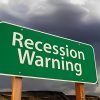Fannie Mae announced on Friday that it will pay the U.S Treasury $5.5 billion in dividends next month due to its double in profits last quarter. The company reported a net income of $5.05 billion in the fourth quarter, up from $2.5 billion in the year previous.
Since receiving $116.1 billion in government bailouts between 2008 and 2011, the government-controlled mortgage company has paid the Treasury $154.4 billion in dividends. Freddie Mac, sibling to Fannie Mae, also received government help during the recession. On Thursday, Freddie Mac said it would pay the Treasury a dividend of $4.5 billion next month in light of soaring profits.
Neither Fannie Mae or Freddie Mac make loans of homebuyers directly. Instead, they buy mortgages from lenders, wrap them into securities, guarantee them against default and sell them to investors.
The companies were swept into government conservatorship during the recession, and as a result, both companies are required by their bailout agreement to send nearly all of their profits to the Treasury.
The combined $10 billion in dividends to the Treasury is a sign that the revived housing market is allowing the once-floundering firms to subsidize federal government spending. President Trump’s pick for Treasury Secretary, Steven Mnuchin, said at his confirmation hearing that Fannie and Freddie should not remain under government control “without a fix”.
Even with Republican control of both chamber of Congress and hopes for privatization on the rise, legislation to privatize Fannie and Freddie will be difficult to pass, according to experts. The main concern will likely be the impact this move could have on the rehabilitated housing market, as well as the loss of financial reserves.
The two mortgage companies have a stronger collection of clients than they did during the financial crisis. Fannie Mae’s single-family delinquency rate was at 1.2% at the end of the year after dropping for 27 quarters in a row, while Freddie Mac saw an even lower delinquency rate of 1%.
According to the Mortgage Bankers Association, the single-family delinquency rate for the nation was 2.96% in the third quarter.
















































Comment Template